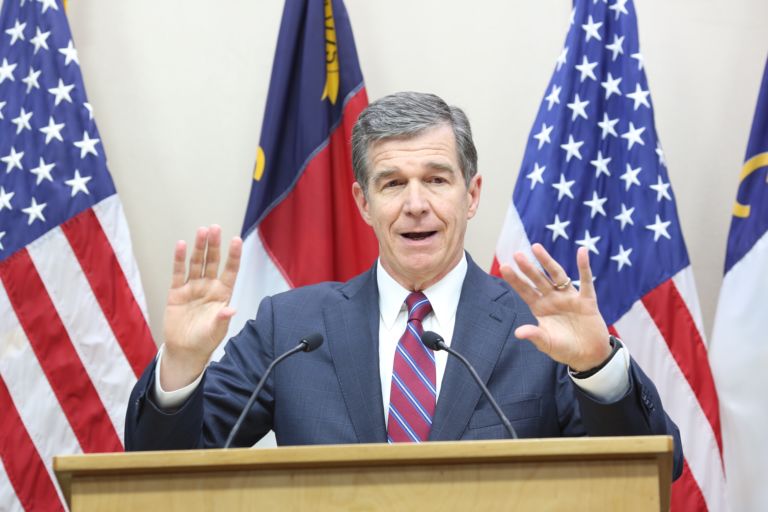RALEIGH – Our nation and state are divided on an array of issues, but there is little disagreement in North Carolina about the role parents should play in their child’s education. The latest Civitas Poll reveals that a stunning 81% of likely general election voters believe parents should have the ability to choose where their child attends school. Support is particularly robust among women between 18 and 34 years old (90%), Hispanics (89%), and those under the age of 65 with a household income of less than $50,000 per year (87%).
Voters also spoke clearly in the poll about how they view the state of K-12 education in North Carolina: They’re unhappy with it. Two out of three believe it’s on the wrong track. Just one in five say K-12 education is heading in the right direction. Gov. Roy Cooper gets low marks for his handling of this critical policy area. Just 35% approve of his handling of education, well below his overall job performance rating (44%).
“This poll is yet another benchmark in the history of the Civitas Poll, showing that the concept of parental school choice is a mainstream public opinion,” said John Locke Foundation President Donald Bryson. “The concept that families have agency in their child’s education is broadly popular, but now we’re beginning to see the real political effects of that with Virginia being the latest example.”
One bright spot is the Opportunity Scholarship program, which has provided low- and moderate-income families with a government-funded voucher of up to $4,200. Thanks to the new state budget, the size of the voucher will grow in the next school year. A parent can use the scholarship to enroll their child at a private school. Six of 10 (61%) likely voters support the program, while 22% do not. Support is even stronger among Asians (76%), Hispanics (74%), and Blacks (63%).
State policymakers who want a more robust role for parents in the education arena will be pleased to learn nearly seven of 10 likely voters (68%) like the idea of legislative proposals that give parents greater flexibility in allocating how tax dollars are spent for their child’s education. Only 15% say no.
Bryson continued, “While Gov. Cooper and the education industrial complex continue to fight the relentless march of educational freedom through lawsuits and fights to defund popular programs, North Carolinians are moving the other direction. It shows how out of touch school choice opponents are with the needs of families and the popular opinion.”
Conversely, the poll reveals a vivid lack of support for local school boards. Only 36% expressed a favorable opinion of their local school board overall. When asked who is best suited to determine where a child should attend school, a scant 11% chose the local school board, while 78% chose parents as the key decision-maker.
Teacher unions are even more unpopular than local school boards. The Civitas Poll shows a mere 33% have a favorable opinion of teacher unions. Importantly, likely voters make a clear distinction between teacher unions and teachers. Nearly two out of three (63%) hold a favorable view of teachers.
Complete poll results can be found here.
Methodology: This probabilistic survey was conducted Jan. 21-23, 2022, with 600 likely general election voters. It has a margin of error of ±3.95%. Known registered voters were interviewed via live calls, SMS, and email invitation. This survey was weighted to likely general election voter universe.


